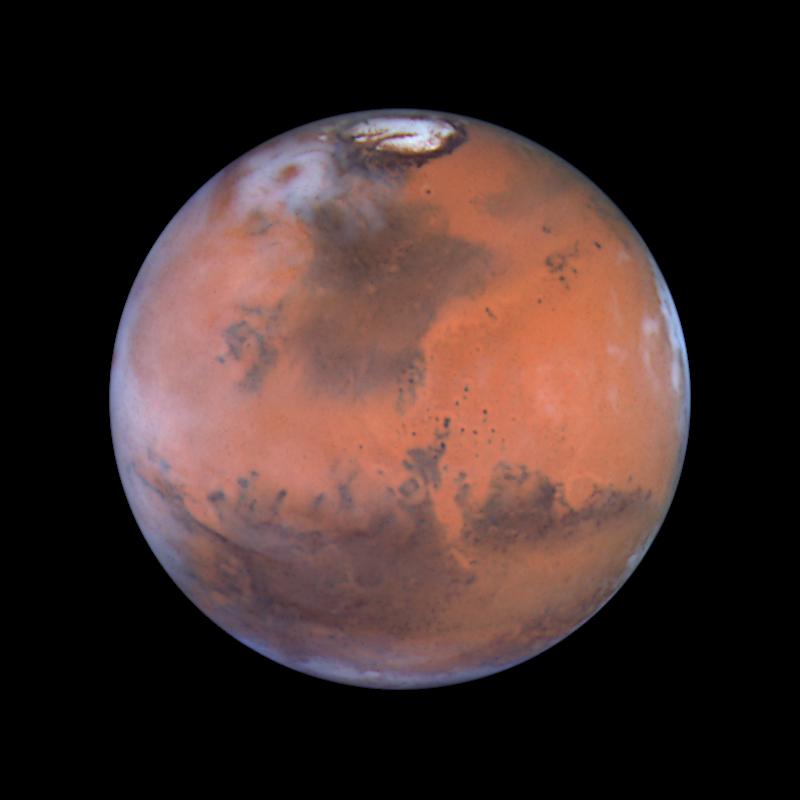The question of why Mars, which was once a planet abundant in water like Earth, lost its water while Earth did not has fascinated scientists for years. Mars suffered a drastic shift that left its landscape barren and dry, despite its resemblance to Earth. This article explores the most recent findings and hypotheses in an effort to solve this enthralling riddle. Scientists have proposed a variety of theories to explain why water vanished from Mars, ranging from the impact of solar winds to the role of the Martian atmosphere. Come along as we investigate these fascinating concepts and solve the mystery surrounding Mars’ water depletion.
Mars: A Drier Planet
It was long thought that the red planet Mars, which is next to Earth, possessed enormous oceans like the ones found on Earth. The sight of these ancient oceans covering a large percentage of the planet’s surface would have been amazing. But over billions of years, Mars saw a drastic change that left it mostly dry and arid, like the planet we know today. According to scientific speculation, the loss of Mars’ atmosphere is strongly related to this loss of water. Mars’ atmosphere is currently vanishing at a pace of 1-2 kilos per second, which adds to the planet’s arid and hostile environment. The amazing tale of Mars’ metamorphosis serves as a reminder of the solar system’s dynamic character and the mysteries that yet remain to be solved as we continue to explore the universe.
Numerous hypotheses have been put out to explain Mars’s water loss. According to one of the most frequently accepted ideas, atmospheric escape is the method by which the water on Mars slowly leaked into space. Water vapor is among the gases that are lost during this process from a planet’s atmosphere. It is believed that Mars’s weak magnetic field may have sped up this escape process. Deep below Mars’ core, chemical processes are assumed to be the cause of the planet’s loss of magnetic field. Mars’s loss of its magnetic field also resulted in the loss of its shield against solar wind, which ultimately led to the disappearance of its oceans. These elements working together provide light on the intricate processes that caused Mars’ water supply to run out.
A fascinating new study suggests that the water on Mars may have both evaporated into space and become trapped in the minerals that make up the Martian crust. This fascinating phenomenon known as chemical weathering may have had a significant impact on the Red Planet’s mysterious lack of liquid water. Through exploring the depths of this process, researchers are learning new things about the intricate past of water on Mars.
Earth: The Water-Rich Planet
In contrast to Mars, Earth has maintained an abundance of water resources in spite of its close closeness to the Sun. The strong and widespread magnetic field that exists on Earth is one of the primary characteristics that distinguish it from Mars. The magnetic field that the Earth’s core generates acts as a powerful shield to keep solar winds and their damaging effects out of our atmosphere.
In addition to shielding the atmosphere, the magnetic shield is essential for maintaining our precious water supply, which is necessary for keeping life on Earth alive. The magnetic field protects this vital resource from solar radiation and keeps water molecules from escaping into space, ensuring their continuous availability.
Furthermore, the effects of the magnetic field go beyond keeping water fresh. It also protects Earth from solar flares and cosmic radiation, which contributes to the preservation of a stable climate. It is because of this stability that complex living forms can develop and various ecosystems are supported.
The Earth’s magnetic field is an amazing phenomenon that helps to maintain our plentiful water supplies, maintain a stable climate, and ultimately support life on Earth.
One of the main reasons Earth can hold onto water longer than Mars is because of its larger bulk. Our planet can efficiently hold onto water and keep it, along with other gases in the atmosphere, from escaping into space because of the stronger gravitational attraction. This gravitational pull acts as a barrier, protecting the priceless resource that sustains life on Earth.
In conclusion, a number of variables, such as planetary mass, magnetic field, and atmospheric composition, can be blamed for the loss of water on Mars and the retention of it on Earth. These results serve as a reminder of the precarious state of life-sustaining environments on all planets, including our own, even as we continue to investigate and comprehend these processes.
Sources
![]()
